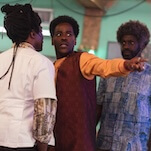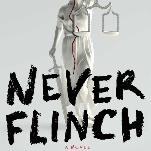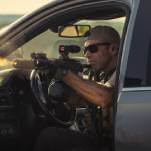Financed for $80 million, the most money ever allotted to a Chinese production, the immense period action epic Red Cliff is John Woo’s first film in the six years since Paycheck ended—for the time being, anyway—his rocky sojourn in Hollywood. From the looks of it, the cultural exchange cut both ways: Woo’s flair for slo-mo theatrics has become a common visual stamp for Hollywood actioners, while his longtime interest in Western themes found a natural home in America, even though the blockbuster conventions of movies like Mission: Impossible II often eclipsed those themes. Bringing all his technical know-how back to his home country, Woo attempts an awkward marriage of East and West with Red Cliff, a busy piece of spectacle that integrates scores of extras with the latest in digital figures and environments. The film is both traditional and modern: austere in its engagement with history, and insistent in its showy action beats.
The “international” version almost certainly tipped the balance. Originally released as a two-part, five-hour opus in China—where it surpassed Titanic’s record for domestic box office— Red Cliff has been cut in half for America and other territories. Beyond the forbidding length, Woo and his producers didn’t want to confuse audiences unfamiliar with the story, so they’ve slimmed it down to bullet points and mass impalings. In essence, the Battle Of The Red Cliffs in 208 A.D. is the culmination of a fight between Prime Minister Cao Cao (Zhang Fengyi), a powerful leader intent on uniting the country by the force of his million-plus army, and smaller rivals from the Kingdoms of Xu who form an alliance to turn him back. Vastly outnumbered, the rebel forces devise clever gambits to leverage the seemingly impossible situation to their advantage.
The on-the-ground battle sequences at the beginning of Red Cliff are an endless grind of bloody, hand-to-hand conflict without much sense of the larger picture, but the film improves in the late going, when the rebels put their scrupulously detailed plan into motion. In between, the truncated version doesn’t have much time to get into the politics and internecine rivalries at play, so it only provides the connective tissue necessary to deliver viewers to the next big showdown. Woo has said he made the longer version in anticipation of the shorter one, and to his credit, the international cut is more coherent than half a movie has any right to be. But when he sliced so close to the bone, some flesh was bound to go missing.







































